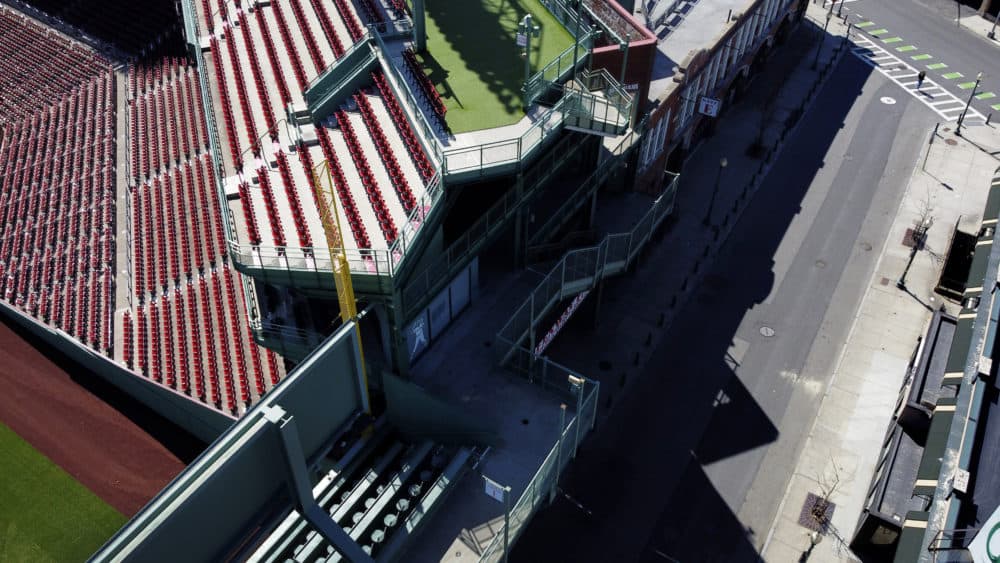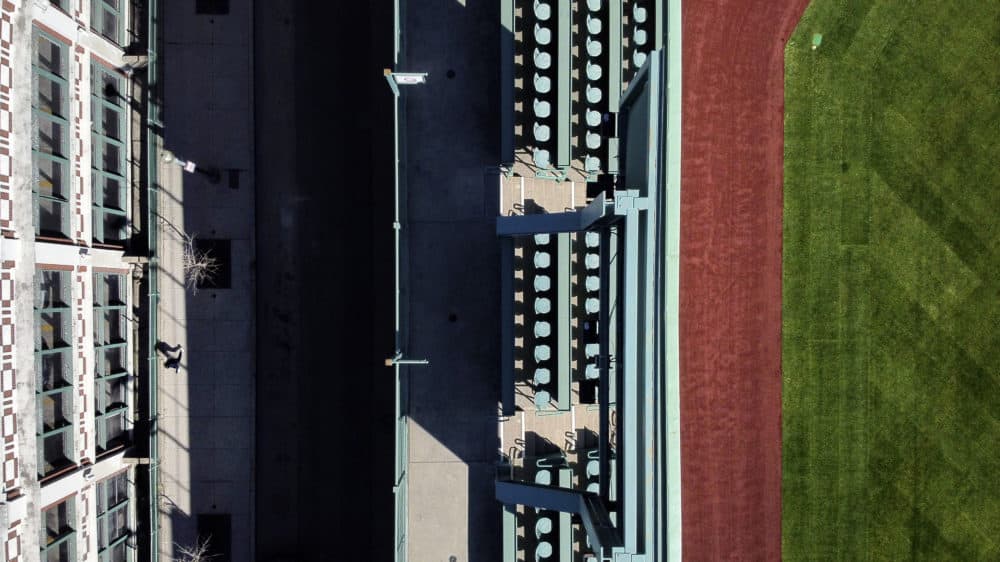Advertisement
Coronavirus Coverage
Injured Athletes, Sports Leaders Face Ethical Issues Amid Pandemic

Even if there’s a baseball season this summer, Red Sox fans won’t see left-hander Chris Sale pitch. He underwent Tommy John surgery on March 30 and talked about the rehab process in a teleconference on Tuesday.
“It’s going to be nine to 14 months of just getting after it and being able to get my body back in shape,” Sale said. “And I’m gonna have a better elbow than I did before.”
But Sale’s elbow ligament reconstruction — and that of two other Major League Baseball pitchers — drew attention to a different timeline. They all happened after the American College of Surgeons recommended that elective procedures be minimized, postponed or canceled because of the coronavirus. And they raised new ethical issues for the sports world.
“It’s irresponsible to be doing things like Tommy John surgery,” said Art Caplan, the founding director of the division of medical ethics at New York University Grossman School of Medicine. "You're perfectly able to function and no one's going to ask you to pitch for a while anyway.”
Caplan added that hospital resources — doctors, nurses and supplies — shouldn’t be diverted as the health care system struggles to cope with COVID-19.
The Red Sox said the they checked with Sale’s Los Angeles-based surgeon Dr. Neal ElAttrache to make sure the elective operation wouldn't strain the hospital system.
“At the end of the day, a virus is much more important than fixing my bum elbow,” Sale said. “Dr. ElAttrache made that point many times to me, that we needed to do this the right way. I even got tested for the virus once I got out there. It came back negative. That was a big deal for us, that this was the right thing to do at the right time and it wouldn’t affect anybody else that was suffering.”
Red Sox Chief Baseball Officer Chaim Bloom also put Sale’s surgery in perspective.
Advertisement
“It certainly is something that we all know is necessary for his livelihood,” he said. “But we’re aware that it’s apples and oranges when you talk about this versus something that is life-threatening.”
But for bioethicists, there’s a dangerous ripple effect when high-profile, non-essential surgeries take place during a pandemic.
“We have a message that we're all in it together, sink or swim together,” said I. Glenn Cohen, a Harvard Law School professor who’s an expert in health law and bioethics. “And when we see people who are not sinking or swimming together, but swimming to the top, it's very disheartening and really erodes some of that solidarity.”
Cohen also noted that it highlights inequities in the American health care system. Professional athletes can draw even more attention to those inequities. That happened when NBA players gained quick and easy access to coronavirus tests when most people had to wait.
And there are other ethical dilemmas facing the sports world. Next up: deciding when to resume games and events in front of large crowds.
President Trump hopes the NFL season starts as planned in September. MLB discussed beginning its season next month in empty ballparks in Arizona.
When asked what he thought about that, Sale said: “There's a right way to do this, and we definitely need to figure that out. But I think the sooner we get back out there across all major sports, the better off we're going to be.”

But when will the crowds return?
“I'd say more like a year than I would a month,” Caplan said. “I don't think the public will be back in stadiums or closed spaces, whether it's a dog show or the Olympics or NBA or whatever, for a long time. It's just too dangerous to have mass gatherings.”
Both Caplan and Cohen emphasized that big crowds shouldn't come back to sports without successful treatments, widespread testing and a vaccine widely available.
“It's hard for me to imagine how you could ethically bring together huge numbers of people for a sport,” said Cohen. “As much as people love sports and I like them, too, the truth of the matter is we just can't risk people's health on that basis.
Like the rest of society, the sports world will have to get used to waiting.
This segment aired on April 8, 2020.
